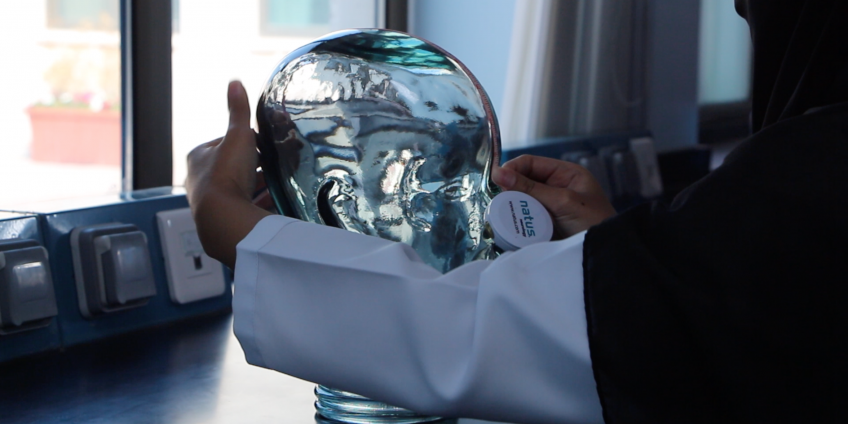
Overview
The Neuroscience Technology Program at Imam Abdulrahman bin Faisal University (IAU) was founded in September 2017.It was the first program not only in the Kingdom but in the Middle East as initiative from the College of Applied Medical Sciences in Jubail to meet the increasing demand for Neuroscience technologists in Saudi Arabia, so, that IAU is well suited to be in the forefront of future development in the field of Neuroscience Technology.
Neuroscience Technology department offers bachelor’s for female students only and it is a four-year taught program plus a year of internship training in clinical setting. The first year of academic study is a preparatory year and from the 2nd to 4th years are studies within the department. Overall, Neuroscience is a multidisciplinary integrated approach tailored to understand nervous systems at levels ranging from the molecular and cellular to the whole organism as well as some basic and advanced laboratory techniques. The goal of the Neuroscience Program is to graduate well equipped Neuroscience Technologists in terms of fundamentals and contemporary concepts of neuroscience that helps in diagnosis and assessment of diseases as well as to be competent with use of state-of-the-art neurodiagnostic medical equipment.
The Department of Neuroscience technology has recruited highly qualified faculty with different subspecialties to meet the teaching needs of the program who are dedicated towards excellence in teaching, by teaching critical skills, mentoring, and supervising research to elevate the neuroscience technology profession and prepare them for the challenges that lie ahead in the future of health care.
Career opportunities include jobs in healthcare, government, private sectors, and academia. The department has also invested in human resources by sponsoring scholarships to quality its staff for their future roles as university professors.
Major objectives of the program
- Deliver an academic program responsive to changes in Neuroscience Technology and adheres to national and international standards.
- Foster in students a commitment to life-long learning.
- Provide students with the knowledge, skills, and attitudes necessary to become competent Neuroscience Technologists capable of working in the healthcare field with high efficiency.
- Enforce teaching staff and student involvement in research.
- Enhance students’ understanding of social, legal, and ethical issues that may be encountered and have an impact on neurodiagnostic practice.
- Prepare students to take a leadership role in the rapidly changing health care environment.
- Promote active participation of faculty and students in community service and health awareness programs.
